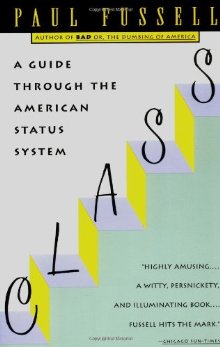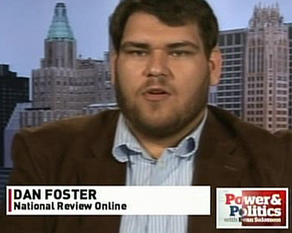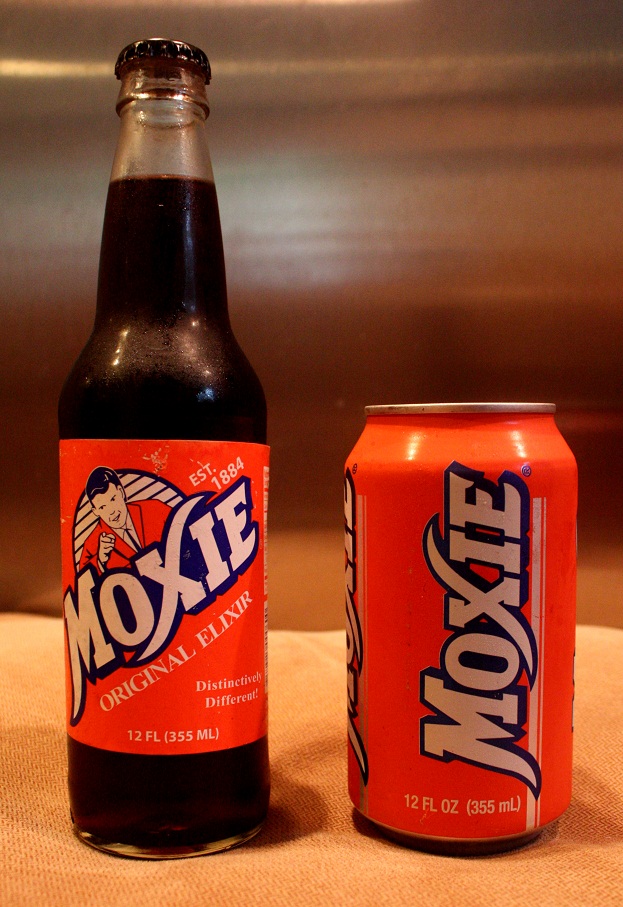« May 2012 | Main | July 2012 »
June 29, 2012
Paul Fussell (1924-2012): Wit. World View. Punditry. Courage. And His Enduring "Class".
The Bible of American Social Strata. Do you dress up to ride on planes? Are your clothes always new? How about your car? Is it usually a newer model? Do you routinely use words like interface, lifestyle and bottom line? Do you display "collectibles" in your home? And does it have wall-to-wall carpet or hard wood floors? If the latter, are your oriental rugs threadbare or new? In his 1983 non-fiction book Class, Paul Fussell, the professor, polymath, author, WWII veteran and wit who died last month at the age of 88, wrote a tongue-in-cheek marvel and satire on American manners that is funny, nasty and true. Upper classes, in Fussell's world, drink Scotch on the rocks, and say “Grandfather died”. Middles: “Martoonis” or "Teenies" and “Grandma passed away”. Proles: beer in a can, and “Uncle Tommy was taken to Jesus.”

Posted by JD Hull at 11:59 PM | Comments (0)
Lawyers with Fight.

Posted by JD Hull at 03:46 PM | Comments (0)
Radical Replevin: Secret Diaries, a Vampire-Hunting A. Lincoln and the Lawyer-Pol as The Anti-Wimp.
Preposterous but fun. A beloved leader and lawyer as the Anti-Wimp. But Confederate soldiers at Gettysburg as the Undead?

Benjamin Walker plays a Radical Dude.
Posted by JD Hull at 02:18 AM | Comments (0)
June 28, 2012
No matter what your politics are, National Review's Dan Foster hands-down wins prize for best media quip on today's SCOTUS ACA ruling.
The News Editor of the conservative National Review Online this morning on Twitter:*
Daniel Foster @DanFosterNRO "Kennedy is a pimp. He never could have outfought Santino. But I never knew until this day that it was Roberts all along."

*Via the always-excellent Colin Samuels, Godfather to IP Wonks.
Posted by Holden Oliver (Kitzbühel Desk) at 04:11 PM | Comments (0)
SCOTUS sidesteps the Commerce Clause, reaches to hang hat on Power to Tax--and upholds ACA. You wild man, John Roberts.
Fancy if surprising footwork there, John Roberts. And it was interesting to everyone to see how SCOTUS got there. Today by a 5-4 vote the U.S. Supreme Court surprisingly upheld the constitutionality of the Affordable Care Act passed by Democrats in 2010. And it did that with a ruling penned by Chief Justice Roberts which--to the Court's credit--did not create commerce when none existed to even regulate under the Commerce Clause. Bad constitutional lawyering by Roberts was avoided by his reaching to uphold ACA under the Power to Tax. The decision has a long-term effect on SCOTUS practice (and to a much lesser extent on constitutional law) and powerful short-term effect on, of course, the 2012 elections. CNN, by the way, had first reported that the ACA's mandate to make people buy insurance (clearly if unfortunately unconstitutional under the Commerce Clause, in our view, and the biggest problem with the ACA) had been struck down--but finally got it right. Excerpt:
The most anticipated Supreme Court ruling in years allows the government to continue implementing the health care law, which doesn't take full effect until 2014. That means popular provisions that prohibit insurers from denying coverage for pre-existing medical conditions and allow parents to keep their children on family policies to the age of 26 will continue.
In the ruling, the high court decided the most controversial provision--the individual mandate requiring people to have health insurance -- is valid as a tax, even though it is impermissible under the Constitution's commerce clause.
"In this case, however, it is reasonable to construe what Congress has done as increasing taxes on those who have a certain amount of income, but choose to go without health insurance," Chief Justice John Roberts wrote in the majority opinion. "Such legislation is within Congress's power to tax."
Posted by JD Hull at 02:54 PM | Comments (0)
June 27, 2012
A Few Words About Nora Ephron (1941-2012).
We should have put her in our Pantheon long ago. In 1972, in her essay "A Few Words About Breasts", she changed things for me and others who aspired to be writers and journalists. Why? It was the fun and moxie of her. And of course that killer last sentence of the now-famous Esquire piece no one will ever forget. Essayist. Funny Girl. Author. Screenwriter. Director. Mother. Role model for women and writers. She was, everyone learned in a flash, and then over and over again, much more than talented Carl Bernstein's talented writer ex-wife. Too young, at 71, but what a life. LA Times obit here but none of the hundreds of pieces in last 24 hours really do it for me. Ephron was, in a sense, the classic comic. She was at heart a soldier, a survivor and brilliant essayist who could take her own pain, face it, learn from it, use it--and make us all feel more alive. And make both herself and us laugh about it a bit.
.jpg)
Nora/Meryl and Carl/Jack

Posted by JD Hull at 11:59 PM | Comments (0)
Thank you, Frisby & Company, Solicitors, Stafford, England, for having me speak today.
Because all three--Harvard prof Alan Dershowitz, my friend trial lawyer Dave Boies and one of our U.S. Supreme Court justices I've met and don't really like that much--needed to cancel at the last moment, my longtime Cambridgeshire-based friend Ruth Barber, a talented commercial lawyer and Director (i.e., partner) with Frisby & Co., Solicitors, asked me to speak by Skype this morning at one of Frisby's regular UK-styled in-house continuing legal education programs.
Frisby is a 30-lawyer firm based in Stafford, England, in Staffordshire, in the West Midlands. It focuses on contentious commercial work, particularly in the area of serious fraud and environmental health and safety. Frisby also has a newer--but exploding and very successful--white-collar crime practice.
Ms. Barber employed a talk-show format--and asked most of the questions. Told the group (in a local hotel conference room) what I could in 45 minutes about American law markets, new law firm models and lawyer training; the federal vs. state court system in the U.S., the importance (in my view) of keeping cross-border commercial disputes out of our state courts, the problems with popular election of state judges here and our small but more talented efficient federal bench; and finally whether Anglo-Irish American lawyers were even more long-winded and full of themselves than Brit solicitors and barristers (answer: oh yes). Seriously, a wonderful and impressive program I'd gladly do again.
Thanks for having me, Ruth, and Frisby lawyers. Appreciated. And I learned much.
(JDH with D. Jackson)


West Midlands of England, where Frisby is based, are beautiful. Above: Grounds of a local rehab (folks at time told me it was like a "camp") I was guest in in early 1980s.
Posted by JD Hull at 11:59 PM | Comments (0)
June 26, 2012
Dee Briggs Studio: This Summer in Pittsburgh and New York.
Intimate Friction
The Mattress Factory
Pittsburgh, Pennsylvania
Curated by Mary-Lou Arscott
Now through September 1
www.mattress.org
Group exhibition: Dee Briggs, Nina Barbuto, Nick Durrant, Jeremy Ficca, Pablo Garcia, Jenn Gooch, Claire He, Matt Huber, Nick Liadis, Transformazium, Gill Wildman, and
Factory Direct
The Warhol Museum
Pittsburgh, Pennsylvania
Curated by Eric Shiner
Now through September 9
www.warhol.org
Group exhibition including: Chakaia Booker, Dee Briggs, Thorsten Brinkmann, Todd Eberle, Jeanette Doyle, Fabrizio Gerbino, Ann Hamilton, William Earl Kofmehl III, Ryan McGinness, Mark Neville, Sarah Oppenheimer, Edgar Orlaineta, Orlan, and Tomoko Sawada.
55th Chautauqua Annual Exhibition of Contemporary Art
Chautauqua Institution
Chautauqua, New York
Curated by Judy Barie
Now through August 25
www.ciweb.org
Posted by JD Hull at 11:02 AM | Comments (0)
June 23, 2012
Using the complaint against your client: Confer right away--like now--with your shop's dorky non-litigators on the 33rd Floor.
Litigation puts a spotlight on things you can fix. Things you can fix now. The opportunities are endless--for both GCs and outside counsel--and you see them in every dispute filed.
Take a look at the last three or four complaints filed against any of your clients. Or, even better, review again that one you just received today. If you are outside counsel, or even inside counsel, and "do" litigation, you are presented with all manner of improvements and changes a good client can and should make to its operations right away.
Yes, fix it. Like now. A client problem--it will usually fall in the category of "imperfections" or "operational glitches" rather than wrongdoing or illegality--is sitting there in the complaint right now looking at you.

Now, before the next order is received, before the next shipment is made, before the next employee termination, before you execute the next license agreement, before the next disposal of that residual waste from day-to-day operations, get that problem to someone who can fix it, not litigate it.
But how many of us--outside counsel, and even GCs in litigation management and oversight--don't say or do anything, or simply put it off, because we think it's not part of our "litigation" job?
Or we think it's a problem we'll mention to the polite transactional and tax lawyers down the hall--the ones the client has used to plan and grow for decades--when and if we get around to it? But we never do take action on it. It becomes a well-meaning "things-to-do" note made in the excitement of the beginning of a fight.
Litigation often hands you the chance to add long-term value immediately--and solve an operations problem before you finish the barest outline of the Answer or Rule 12 Motion.
Examples: Lame or muddy contract language inherited from a predecessor. Confusing or poorly drafted choice of law or ADR provisions, which always seem to get litigated preliminarily in an expensive opening sideshow that delays focus on the merits. Or waste storage or handling methods which "comply"--but just barely--and makes a state or federal agency or private citizen look a little too hard and long at your client's facility next Spring.
My favorite after terms and conditions in contract language is always this: Bad HR practices, or the repeated "un-classy" firing--a termination which is legal but brutal and inartful and will get you sued. You win handily--but fees to obtain summary judgment exceed $100,000.
How handy is that? At what price glory?
Long-term, you're not hired--as outside counsel or a GC--to have a good defense, or a "good case". You are hired to have: (1) no future issue, (2) no investigation (3), no dispute and/or (4) no lawsuit.
The opportunities are endless--for both GCs and outside counsel--and you see them in every dispute filed.
(from several past posts)
Posted by JD Hull at 01:59 PM | Comments (0)
June 22, 2012
Rochester: New York versus Kent.
WTF. Someone has to go there. But why us?

American Rochester, Genesee River.

Preferred Rochester, River Medway.
Posted by JD Hull at 11:59 PM | Comments (0)
June 21, 2012
In San Diego: Kreep v. Peed. Another Argument for Merit Selection of State Court Judges in America.
Get classy, state legislatures. We've made the argument from this blog for 6 years and out of our firm for 20 years. Judges should not be elected. Here's why. See Tuesday's San Diego Union Tribune.
The Loser, Garland Peed: Can President Obama appoint this guy to something better?
Posted by JD Hull at 11:59 PM | Comments (0)
June 19, 2012
A Few Good King-Hell Eccentrics: Do you think rank-and-file employees are boring? Well, we do, too, Jack.
And is there a market, too, for the well-rounded geek? Is that coming? We all love employees, payroll soldiers and others from our multi-colored galaxy of white-collar dorks. They are essential. They execute and implement. They get stuff done. Certainly, no one could survive without them. But what kinds of personalities make businesses, make money and make our day? See this one by Schumpeter at The Economist earlier this month we almost missed, "In Praise of Misfits: Why business needs people with Asperger’s syndrome, attention-deficit disorder and dyslexia". It starts out wonderfully, and somewhat wistfully, particularly if you came of age in the three decades following WWII:
In 1956 William Whyte argued in his bestseller, “The Organisation Man”, that companies were so in love with “well-rounded” executives that they fought a “fight against genius”. Today many suffer from the opposite prejudice. Software firms gobble up anti-social geeks. Hedge funds hoover up equally oddball quants. Hollywood bends over backwards to accommodate the whims of creatives. And policymakers look to rule-breaking entrepreneurs to create jobs. Unlike the school playground, the marketplace is kind to misfits.
Recruiters have noticed that the mental qualities that make a good computer programmer resemble those that might get you diagnosed with Asperger’s syndrome: an obsessive interest in narrow subjects; a passion for numbers, patterns and machines; an addiction to repetitive tasks; and a lack of sensitivity to social cues. Some joke that the internet was invented by and for people who are “on the spectrum”, as they put it in the Valley. Online, you can communicate without the ordeal of meeting people.
Wired magazine once called it “the Geek Syndrome”. Speaking of internet firms founded in the past decade, Peter Thiel, an early Facebook investor, told the New Yorker that: “The people who run them are sort of autistic.” Yishan Wong, an ex-Facebooker, wrote that Mark Zuckerberg, the founder, has “a touch of Asperger’s”, in that “he does not provide much active feedback or confirmation that he is listening to you.” Craig Newmark, the founder of Craigslist, says he finds the symptoms of Asperger’s “uncomfortably familiar” when he hears them listed.

Robert Edward Ted Turner, circa 1953.
Posted by Holden Oliver (Kitzbühel Desk) at 11:59 PM | Comments (0)
June 18, 2012
Why I took 10 minutes off from work to trim my LinkedIn connections down to 400 of my closest friends.

Experts say 100 or so "weak tie" relationships is all the most energetic, driven and genuinely social (read: "olden days" social--not passive-aggressive hiding-out dweeb social) of us can likely handle, anyway.
Okay, we'll admit it. LinkedIn, as others suggested to us years ago, will stick and it's useful. It is part of the new infrastructure whether we like it or not. Why is it useful? Two reasons: (1) It helps you "collect" who you know, or who you want to know; and (2) used right, it's a way to get people to "think of you" and yours (always important). But you need to use it wisely, and spend a minimum of time (say 10 minutes a day, tops) with it. For me, it's a starting point for relationships--and hopefully a few ideas. But it can't really do much else. It will do nothing for my firm, my clients or me unless, eventually, I pick up the phone and meet face-to-face with you. But it's a start.
And it needs to be managed and be pruned. One hundred or so "weak tie" relationships is all even the most energetic, driven and genuinely social (read: "olden days" social--not passive-aggressive hiding-out dweeb social) of us can likely handle. I just did that. Trimmed. Took 10 minutes.
Just 12 reasons so far in my case:
1. Your follow-up with me was atrocious. Sorry but networking at a minimum should result in both relationships and ideas. Not names and "awesomes".
2. We didn't "stick". Maybe I just didn't like you that much. Or the reverse.
3. I referred you a good client that was not right for my firm. You did not thank me or let me know generally of the matter's progress. Never again, pal.
4. You are the 55-year-old Joanie Leoni and not the 30-year-old one. Sorry. I am famously shallow.
5. You think LinkedIn is Facebook for suits. I don't really date biz contacts. I was kidding in 4 above.
6. And sorry, 4 or 5 dudes, I am straight. Or so far so good.
7. I have no recollection of who you are, how you could help my firm or its clients or how I could exploit you.
8. Reid Hoffman was not nice enough to me at a 2006 New Year's Renaissance Weekend in Charleston we attended with 1200 other egomaniacs.
9. You're from Nigeria or Chad and not the guy or woman I met at the IBA convention in 2009.
10. I discover you're a 14-year-old from Jakarta and I have enough problems.
11. You have never contacted me about what you might want.
12. I have never contacted you about what I might want.

Reid Hoffman, LinkedIn's patient Co-Founder.
Posted by JD Hull at 10:01 PM | Comments (0)
June 17, 2012
Ah, here we go...Greece on Sunday: "The eyes of the world..."
Is it just me--or does Greece, Europe's first democracy, even vote real slowly? NBC News: "Greeks go to the polls in vote that threatens to shake world economy".

Bloomberg photo: Alexis Tsipras, the young leader of Greece's Syriza party. “Turn your backs on the two parties of bankruptcy." And, Dude, if you win, do not screw this up.
Posted by JD Hull at 11:59 PM | Comments (0)
June 16, 2012
It's Bloomsday. The day you meet your wife can be its own world.
The day you meet your wife can be its own world.

Above: James Joyce and Sylvia Beach.
Posted by JD Hull at 11:40 PM | Comments (0)
June 15, 2012
If you come on like a dream.
The 1993 song "Remedy" by The Black Crowes is one of the ten best chancery songs ever cut.
If I come on like a dream?
Would you let me show you what I mean?
Posted by Holden Oliver (Kitzbühel Desk) at 11:59 PM | Comments (0)
Cross-Culture: A Dutchman born in Columbia marvels about--and explains--the post-colonial ethnic salad bowl that is Panama.
I've worked in Panama only twice--and I'd love to go back. Once spending a week there I was, like others, amazed by its legions of banks, the range of going businesses, the contrasts, the over-importance of the Canal to its economic health, the frustrations of working there, the problems with finding decent local business lawyers to work with and the daunting and king-hell blend of tribes from all over the world throughout its strange and meandering history. It is still a post-colonial ethnic salad bowl. At R.D. Lewis's fascinating Cross-Culture Maarten Stal writes this week on "Panama: A Country in Transition". In particular, note what consultant Stal has to say about Panama's history, the primacy of Canal Zone and the joys and challenges for the many ex-pats now working in a country with its human origins in "native Indians, conquistadores, blacks, Chinese, French, Americans, Arabs, Jews and a variety of other (mostly European) nationalities".

Panama City, Panama
Posted by JD Hull at 11:59 PM | Comments (0)
June 12, 2012
The Wonderful Twos: One employee per client project is rarely a good idea.

"Identical Twins, Roselle, New Jersey, 1967", Diane Arbus.
Customers need to know you are authentically and earnestly "there". One employee per project is rarely a good idea. Think in terms of twos. Have a second person (at least) for everything.
Two (2) Things about Thinking in Terms of Twos:
1. Staffing. If you are a services professional, any project you do for a customer, buyer or client should have at least two (2) professionals assigned to it. It doesn't matter how small or big the project is. As your co-workers are often traveling, in meetings or are otherwise unavailable, customers who call or e-mail deserve to have more than one member of your office 100% knowledgeable and current on any project. If it's a small matter, just don't charge for it. Trust us on this.*
2. Written Communications. Start this regime on both ends of your communications. Get both your staff and customers to buy into it. Invoices, letters, e-mails or Anything Written--to or from your office--should always be addressed to (customer end) and received by (your firm's end) two (2) human beings. In addition to the reasons given above in Item 1--i.e., for communications received by your office--writings by your firm TO your clients or to any of their agents should copy two (2) humans. Or you will be an Administrative Screw-Up. Reason: Main contact points for customers, buyers and clients also get busy and unavailable. So copy one other human who assists the contact, client rep, GC, in-house person or accounts payable folks whenever you can do it.
It's common sense. But if you are a professional services person--e.g., accountant, lawyer, actuary, mortgage broker, stock broker--you likely don't have any common sense. And you know that. Sorry, Jack, but (gulp) it's just true.
Again, trust us.
*If customers actually need to frequently call you to check on things, you are likely a Customer Service Screw-Up. The work is never about you. Buyers of professional services should rarely have questions. (Any question they have you can and should anticipate 99.5% of the time.) But if they DO have questions--about either an ongoing project or in particular a new matter they inquire about--have two (2) people ready to respond. Customers need to know you are authentically and earnestly "there".
Posted by JD Hull at 11:59 PM | Comments (0)
HBR: In Praise of The Generalist. Just in time, too. "Domain expertise" was getting on everyone's nerves.
This appeared on June 4 in the Harvard Business Review and what we've been trying to tell you lately in any event: All Hail the Generalist, by Vikram Mansharamani. It begins:
We have become a society of specialists. Business thinkers point to "domain expertise" as an enduring source of advantage in today's competitive environment. The logic is straightforward: learn more about your function, acquire "expert" status, and you'll go further in your career.
But what if this approach is no longer valid? Corporations around the world have come to value expertise, and in so doing, have created a collection of individuals studying bark. There are many who have deeply studied its nooks, grooves, coloration, and texture. Few have developed the understanding that the bark is merely the outermost layer of a tree. Fewer still understand the tree is embedded in a forest.
Approximately 2,700 years ago, the Greek poet Archilochus wrote that "The fox knows many things, but the hedgehog knows one big thing." Isaiah Berlin's 1953 essay "The Fox and the Hedgehog" contrasts hedgehogs that "relate everything to a single, central vision" with foxes who "pursue many ends connected...if at all, only in some de facto way." It's really a story of specialists vs. generalists.

Mansharamani, at Blair Academy, Blairstown, NJ, in 2011.
Posted by JD Hull at 08:35 PM | Comments (0)
June 11, 2012
Mike O'Neil: Tomorrow's Arizona race for Rep. Gaby Giffords's seat. "The Only Other 2012 Bellwether Election."

See by Mike O'Neil in today's Huffington Post "The Only Other 2012 Bellwether Election." Excerpts:
Prior to the November presidential election, there are only two instances this year where actual voters will cast ballots in elections that could provide a clue about the mood of the electorate. The first of these was the Wisconsin recall election, in which Republican Governor Scott Walker successfully withstood an attempt to oust him from office. The second is the race for the remainder of Rep. Gabrielle Giffords term which will be held on June 12.
In any individual race there are always factors other than the national mood that are relevant. Walker, for example, may have benefited by a reluctance of voters to oust an elected official for anything short of criminal offenses. Much about the Arizona Congressional race, however, suggests that it could be an excellent barometer of public sentiment on national issues. The district itself is regarded highly competitive.
It was represented for over two decades by Jim Kolbe, a moderate Republican. When Kolbe retired, the seat was won by centrist Democrat Gabrielle Giffords. If this district were a state, it would be classified as a presidential tossup.
This race pits her former aide, Ron Barber against the Tea Party candidate, Jesse Kelly, who narrowly missed beating Giffords in 2010.
Posted by JD Hull at 04:45 PM | Comments (0)
June 10, 2012
Eurozone "buys time" with loan to Spain: 100 billion euros.
Greece, Ireland, Portugal--and now Spain. The European Union and IMF at this point have earmarked 500 billion euros to finance European bailouts. What's remarkable to me is that European policymakers and world markets largely consider this fourth loan of 100 billion euros to be good news. Short term, it certainly is. But long term? How deep and desperate worldwide must the crisis become? See, e.g., at Reuters "Eurozone Agrees To Lend Spain Up To 100 Billion Euros".

Spain's finance minister, Luis de Guindos.
Posted by JD Hull at 11:20 PM | Comments (0)
Pantheon: Chrissie Hynde, Pluperfect Anti-Peasant.
They say that Midwest-bred rocker Chrissie Hynde--and it started way before before the acclaim, fame and money--has no fear of Anything or Anyone. Can you say that? Ms. Hynde resides in our Roman Pantheon.

Way to go Ohio.
Posted by Holden Oliver (Kitzbühel Desk) at 12:59 AM | Comments (0)
June 09, 2012
Silverman, Allen & Bruce
Posted by JD Hull at 12:09 AM | Comments (0)
June 08, 2012
China in Africa: China, Taxation & African State-Building.
See "Chinese Thinking on Taxation and African Infrastructure" at Deborah Brautigam's fine and much-needed China in Africa: The Real Story. Her recent post touches on road building in Kenya to points in South Sudan. Query: Are there any other blogs or resources on the important but mysteriously under-reported subject of China in Africa? We'd like to know.

Above from The Shanghaiist: "Fusing Africa and China through Design".
Posted by Holden Oliver (Kitzbühel Desk) at 12:45 AM | Comments (0)
June 07, 2012
Bloomberg: Recession-spooked Americans cling to their current jobs.
This involves everyone working in, for or with an American-based business. It's about the saddest news Americans can get: a hard right jab to our spirit, moxie and ideal. See "Americans Cling to Jobs as U.S. Workforce Dynamism Fades". Excerpts:
The deepest economic slump since the Great Depression has left its mark on both job seekers and job creators, making them more wary about taking risks in a slowly recovering labor market.
Spooked by the severity of the recession and stuck with underwater home mortgages, Americans are less inclined to leave their jobs and less willing to strike out on their own to build businesses, government data show. Even with swelling profits, companies are holding back on hiring, complaining that they can’t find skilled workers for positions they do have open.
As a result, the labor market is losing some of the dynamism for which it’s long been known. And the trend predates the recession: An aging population and the growth of two-income households have reduced Americans’ mobility to about half of what it once was, while technological gains and globalization have led to a loss of middle-income jobs. The economic slump only exacerbated the loss of vigor.

Make yours Moxie anyway, Yank.
Posted by Holden Oliver (Kitzbühel Desk) at 10:51 PM | Comments (0)
June 06, 2012
Lagos, Nigeria: Abuja Investigates. Black Box to U.S. Dana Air Managers Bolt.
From All Africa News via The Leadership in Abuja, Nigeria's capital, see "Nigeria: Dana Air Indian Senior Managers Flee Country". Excerpts:
As Dana Air's woes continue to mount over its plane that crashed on Sunday in Lagos, its senior managers of Indian nationality have reportedly fled the country as Nigerian aviation officials investigate the cause of the crash.
Leadership gathered that the managers hurriedly fled because of the anger the death of more than 200 people has generated and the alleged Dana Air's complicity in the crash.
There are reports that the ill-fated plane was poorly maintained and in bad shape when it made its last flight.
Meanwhile, people living close to the place where Dana Air's Boeing MD-83 plane crashed have raised the alarm over the stench emanating from the site at the Iju-Ishaga area of Lagos State.
The residents of the densely populated area lamented that apart from the wreckage that still liters their vicinity, the offensive odour oozing from the site of the crash calls for concern over the state of health of those inhaling the stench.

Posted by Holden Oliver (Kitzbühel Desk) at 11:59 PM | Comments (0)
June 05, 2012
Simple Justice on Simple Clients and other Customer Life Forms.
There but for the grace of Karl Llewellyn go we. See Scott Greenfield's "The Unsophisticated Client". Excerpt on my notion of certain flora and Clients from Hell:
Many defendants are barely literate, if at all. Put papers before them with page after page of black marks on white and they are overwhelmed with your legal brilliance. They haven't got the slightest clue what the words mean, whether your caselaw is relevant or whether your argument holds any water at all, but they feel the weight of the paper, the see the exhibit tabs, they fondle the heft and are impressed. You produced all these pages just for them. You must be a good lawyer.

Ivy-educated Greenfield pre-2009 Bergen County shotgun accident.
Posted by JD Hull at 11:59 PM | Comments (0)
June 04, 2012
China adds Afghanistan to its smart, ambitious hit list for resources & global position.
Today Cairo, Tomorrow Kabul. And how many Yank and Brit lawyers are watching, engaged and poised to dive in? See Reuters: "China steps up Afghan role as Western pullout nears". Despite President Clinton's famous quip that "there's not much of anything to bomb", Afghanistan has natural resources out the wazoo--and it has strategic geographical position. China and its government get that. Resources: gold, silver, copper, zinc and iron ore in southeast; lapis, emerald and azure in northeast; petroleum and natural gas reserves (substantial but indeterminate) in north. Plus uranium, coal, chromite, talc, barites, sulfur, lead, and salt. In the middle of Asia, Afghanistan has been a portal of trade and migration for centuries. And it connects Asia with the Middle East.

.jpg)
Posted by Holden Oliver (Kitzbühel Desk) at 11:59 PM | Comments (0)
60th Jubilee: In our book, Brits are tougher & stronger than Americans--and certainly more respectful of their history.
Been seeing it my whole life. Below in NBC photo: Yesterday Londoners wait for the second launch of 1,000 ships in 350 years on the River Thames. This time it is to celebrate Elizabeth II's 60th year as Queen. In America, this would be The Lost Barbecue Weekend, Price-Cut Madness or Tailgating Without A Point.

Posted by Holden Oliver (Kitzbühel Desk) at 09:27 PM | Comments (0)
June 03, 2012
Charles Thomas Munger: Tycoon, Sage, Piece of Work.
Acquire worldly wisdom and adjust your behavior accordingly. If your new behavior gives you a little temporary unpopularity with your peer group, then to hell with them.
--Charlie Munger, 88, ex-lawyer, investor. Net worth: $1.5 billion.

Posted by JD Hull at 03:59 AM | Comments (0)
June 01, 2012
Ex-National Anthems: Don't Sing this One at Home Alone.
Posted by Holden Oliver (Kitzbühel Desk) at 11:59 PM | Comments (0)
Cross-Culture on Class Mobility in India: "The offshore industry shook all that up."
Over at Richard Lewis's always-fine Cross-Culture see "Shifting Social Dynamics in Modern India" by Anita Punamiya. Excerpts:
Many Indians, whether they admit it or not, covet the Western way of life. However in the past it was only a select few who actually managed to realize their aspirations to study/travel/live abroad. For the majority, it was just a dream. Traditional Indian society has always been restrictive in many senses. Social mobility was restricted. Family, gender, caste, and hierarchy defined one’s place in the social order, determined how others viewed you, related to and behaved towards you and what is expected of you.
It also defined what options were open to you in terms of what you could accomplish and who you could become in life. It favoured the privileged and those in the upper classes in society. So dreams of going abroad seemed the only way to break the social shackles.
The offshore industry shook all that up. It levelled the playing fields in some ways. It opened new doors, offered new opportunities and financial freedom, which brought in its wake many other changes. The social fabric of Indian society is undergoing dramatic changes. The changes are redefining the concept of identity among younger Indians and reshaping the role of family and the Indian values of interdependence, modesty, family honour, social hierarchy and so on.

Bookstand in Delhi, 2004. Photo: Nick Papadopoulos.
Posted by Holden Oliver (Kitzbühel Desk) at 11:59 PM | Comments (0)

